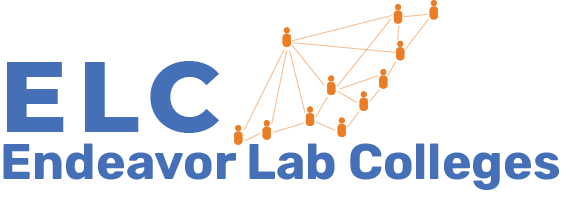From Uncertainty to Opportunity: How Experiential Learning Builds Resilient, Career-Ready Graduates
If the last few years have taught us anything, it’s that adaptability has become one of the most essential skills for success. The COVID-19 pandemic disrupted nearly every aspect of life—work, learning, and community. Students entering college during or after this period have come of age in an environment defined by uncertainty, rapid change, and the constant need to adjust. Students entering college today are preparing for a world of work that is being redefined in real time, where human creativity, problem-solving, and resilience are as valuable as technical expertise. In this environment, the ability to learn from experience—to experiment, reflect, and adapt—has never been more vital.
Experiential learning sits at the intersection of career readiness, well-being, and human development. Through internships, community engagement, research, and campus-based employment, students gain more than professional experience—they cultivate self-efficacy, resilience, and a sense of purpose. These qualities strengthen students’ ability to compete in a dynamic job market while also shaping them into more grounded, self-aware individuals. Through their experiential learning, they develop the emotional intelligence, adaptability, and sense of purpose needed to navigate the complexities of modern life—balancing professional ambitions with personal well-being, and approaching new challenges with confidence, curiosity, and resilience.
The strength of experiential learning lies in its ability to connect theory to practice. When students apply classroom concepts in real-world contexts, they begin to see how abstract ideas translate into tangible impact. They learn to collaborate, to problem-solve, and to handle ambiguity—skills that cannot be taught solely through lectures or textbooks. As they reflect on these experiences, students develop what David Kolb (1984) describes as “learning through transformation,” a process in which experience becomes the foundation for deeper understanding and personal growth.
One of the most resonant frameworks for understanding the power of these experiences is the Happenstance Learning Theory (Krumboltz, 2009). This theory suggests that unplanned events and unexpected opportunities often shape career paths in meaningful ways. Rather than viewing uncertainty as a barrier, it encourages students to approach life’s unpredictability with curiosity, persistence, and optimism. Experiential learning embodies this philosophy—inviting students to explore opportunities, embrace chance occurrences, and learn from the unknown. When a student discovers a new field through an internship or campus-based work program they hadn’t planned on, or finds fulfillment in a project that began as an accident, they are living out the principles of happenstance.
In my dissertation, Graduating in the Age of COVID-19: A Phenomenological Study on Career Readiness Among Undergraduate Students and Recent College Graduates (Link, 2023), I explored how students graduating during the pandemic adapted to profound uncertainty and shifting professional landscapes. The research revealed that students who engaged in experiential opportunities—such as internships, applied projects, or community-based learning—demonstrated higher levels of adaptability, confidence, and well-being compared to peers with less practical engagement. These findings reinforce the central argument of this piece: that experiential learning builds tangible career skills and supports the personal development needed to thrive amid disruption. Moreover, as the world now experiences another period of transition shaped by artificial intelligence and rapid innovation, the same capacities that supported pandemic-era graduates—flexibility, curiosity, and purpose—remain essential for navigating an evolving world of work.
The pandemic taught students and educators alike how to pivot quickly, adapt to virtual work, and collaborate in new ways. Today, the rise of AI is demanding a similar shift. The capacity to interpret complex data, think critically, and apply ethical reasoning to technology-driven challenges is becoming a defining feature of career readiness. Experiential learning helps students develop these capacities by placing them in real-world contexts where they must synthesize knowledge, respond to ambiguity, and make informed decisions—skills machines cannot replicate.
Moreover, experiential learning nurtures well-being in a time when students are grappling with uncertainty about the future of work and identity. Purposeful engagement—whether through an internship, self-guided research project, campus work program, or service-learning initiative—helps students connect their values to their work, reinforcing a sense of meaning and belonging. When education is framed not just as preparation for employment, but as preparation for a life of purpose, students are more likely to thrive personally and professionally.
As institutions, we have a responsibility to integrate experiential learning throughout the college experience, from the first-year experience to the capstone project and beyond. Doing so affirms that education is not merely preparation for a career but preparation for a life of purpose and contribution. In a world where uncertainty is inevitable, experiential learning equips students with the confidence, creativity, and adaptability to succeed.
In the words of John Krumboltz, we should “take actions to create more happenstance in our lives.” The more we encourage students to engage, explore, and reflect, the better equipped they are to find meaning in change and opportunity in the unexpected. And that is the ultimate promise of experiential education: transforming uncertainty into possibility, and learning into a lifelong journey of growth.
